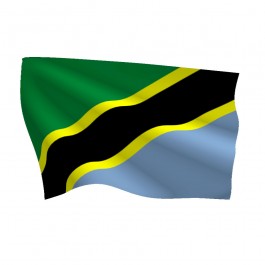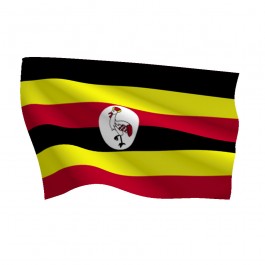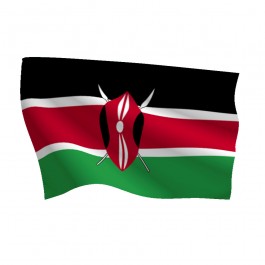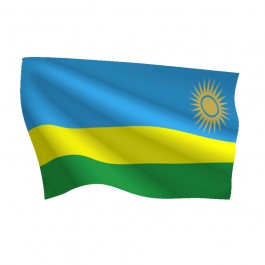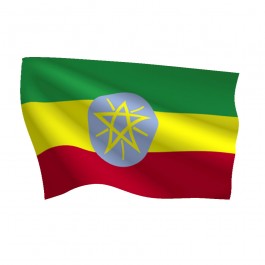By Juliet Nanfuka
Tanzania’s port of Dar es Saalam is one of the landing stations of the Eastern Africa Submarine Cable System (EASSy). However, the country’s internet penetration rate is relatively similar to those of its landlocked neighbours such as Uganda and Rwanda. A total of 9.3 million people of the population of 45 million accessed the internet in 2013. The country has a teledensity of 61 phones per 100 inhabitants, which translates into 27.6 million mobile subscriptions.
In a fast changing socio-political, economic and technological landscape, the extent of freedoms enjoyed by Tanzanian citizens both online and offline is being stunted by government practices and colonial laws.
In June 2014, British owned telecommunications company Vodafone, which operates locally as Vodacom, disclosed that in 2013 the government of Tanzania made 98,765 requests for local subscribers’ data. According to the firm’s Law Enforcement Disclosure Report, this was the highest number of government requests made among the eight African countries where it operates. It should be noted, however, that Vodafone could not publish the requests made by Kenya and South Africa due to legal restrictions.
The company also disclosed that it had not implemented the technical requirements necessary to enable lawful interception of communications in Tanzania and had not received any demands from authorities for interception assistance. However, the country’s Prevention of Terrorism Act 2002 requires service providers to “intercept and retain a specified communication or communications of a specified description received or transmitted, or about to be received or transmitted by that communication service provider” for purposes of obtaining evidence of commission of terrorism-related offences. This law permits the admission in court of information sourced through interception.
While the 2002 law makes it permissible for the state to snoop on citizens’ communications, other laws dating as far back as the mid 1970s constrain transparency and citizens’ access to information. The National Security Act of 1970 makes it a punishable offence to investigate, obtain, possess, comment on, pass on or publish any document or information which the government considers classified.
Another Act dating from the same era is the 1976 Newspaper Act, which gives authorities powers to “exclude” any newspaper from operation in the “interest of the public”. In a 2012 case, the MwanaHalisi newspaper was banned indefinitely on allegations of publishing two seditious stories claiming that state intelligence officers were involved in the kidnapping and torture of a national strike leader. More recently in 2013, two other publications – the Mwananchi and the Mtanzania- were banned both offline and online for two weeks and three months respectively on instructions of the Directorate of Information. This followed accusations of publishing content aimed at provoking discontent between the government and public.
Although the country’s constitution provides for access to information, freedom of expression and assembly and the right to privacy, the existence of laws that sternly limit publication of government information and support interception of communications raises concern over the country’s online freedoms credentials. Besides, the absence of data protection and privacy laws to safeguard citizens’ information collected as part of mandatory subscriber registration makes online users’ vulnerable to state interference.
Nonetheless, recent government announcements of the drafting of three laws – the Cyber security Act, Data Protection Act and the Electronic Transacting Act – come as a positive step for the country in fighting cybercrime and promoting internet freedoms.
While these steps indicate some appreciation of the complex relationship between data protection and online freedom, there remain many uncertainties about free speech and press freedom in the face of interception, draconian and unclear laws, and harsh penalties – especially with vague state transparency.
Read more on the practices, legislative environment, and threats to online freedoms in Tanzania in the 2014 State of Internet Freedom in Tanzania Report prepared by CIPESA.
Uganda: When National Security Trumps Citizens’ Internet Freedoms
The Ugandan telecommunications sector was liberalised in 1998, resulting in an influx of service providers – there are currently four major mobile telecom operators and more than 30 Internet Service Providers (ISPs). The establishment of a Uganda Internet Exchange Point (UIXP) allows for local internet traffic routing, increased speeds and lower costs. The regulatory body reports a teledensity of 52 phones per 100 inhabitants and an internet penetration rate of 20%.
Ugandans have embraced social media as an alternative means of communication with their peers as well as for engaging with government. This is seen in the increase in the popularity of social networking sites such as Facebook, Twitter, LinkedIn, Youtube and Blogspot, which are ranked among the top 10 most visited websites in Uganda. As such the government has developed social media guidelines to aid its ministries, agencies and departments in communicating and engaging with citizens online.
However, as the telecommunications sector grows, so have the number of laws passed to regulate it. Some of these laws have drawn criticism from internet actors both locally and internationally due to their severity, infringement on human rights and contradictions with other existing legislation, including the constitution.
“No person shall be subjected to interference with the privacy of that person’s home, correspondence, communication or other property.”
Article 27 (2) of Ugandan Constitution
The use of ICTs in Uganda is threatened by the very laws that are meant to both protect citizens and ensure their rights. The Regulation of Interception of Communications Act, 2010, the Anti-Terrorism Act No.14 of 2002, the Anti-Pornography Act of 2014 and the Anti-Homosexuality Act of 2014 have undercurrents of surveillance, content filtering, and monitoring.
Although these laws are guised under provisions aimed to protect national security or fight cybercrime, in effect they may serve to silence voices critical to the state. Ultimately, these provisions are resulting in self-censorship by both ordinary online users and the media.
Provisions in the Electronic Transactions Act of 2011 limit the liability of ISPs for users’ content and do not require them to monitor stored or transmitted data including for unlawful activity. However, other laws place ISPs at a cross roads of service provision and protection of subscriber information. They are required to lawfully release users’ data to state agencies for purposes such as fighting terrorism and cybercrime. Moreover, the Anti-Pornography Act (2014) requires them to monitor, filter and block content of a pornographic nature.
In the absence of a data protection and privacy law, just like other countries in East Africa (State of Internet Freedom in East Africa), users’ data is vulnerable to mishandling and abuse by the state and ISPs. These vulnerabilities are also transferred to the offline world where freedom of expression and assembly have not been spared as seen in the limiting provisions under the Public Order Management Act, 2013.
It should be noted that the Ugandan government recently announced plans to draft a Data Protection and Privacy Bill. This is a positive step toward the protection of personal information and its use by the government and the private sector.
Read more in the 2014 Internet Freedom in Uganda Report prepared by CIPESA under the OpenNet Africa initiative. The report provides a status of the legislative environment and threats to internet freedoms in the country.
Internet Freedom in Kenya: Balancing Hate Speech And Free Speech
By Juliet N. Nanfuka
As of May 2014, up to 52% of Kenya’s population had access to the internet. This was much higher than in other East African countries, where less than a quarter of the population had access to the internet. Most of the Kenyan population accessed the internet through mobile phones whose own popularity was partly driven by M-Pesa, a mobile phone based financial services system designed by local developers. Currently, Kenya has a mobile teledensity of 77% facilitated by four mobile service providers.
Kenya’s democratic credentials have been improving in recent years, owing to a new liberal constitution and various transparency and governance reforms. The 2010 constitution redistributed power, including that of the president, which for many years had been a highly divisive matter. However, some of the country’s laws as well as recent reforms undermine freedom of expression, including online. This is a familiar occurrence in East African countries, according to the recently released State of Internet Freedoms in East Africa Report.
The use of ICTs In Kenya has brought to the fore the problem of hate speech resulting from ethnic tensions which have polarised the country for decades. Hate speech became most apparent during the 2007 post-election period during which short message service (SMS) fuelled political conflict and ethnic based violence. More than 1,200 people were killed in the aftermath of the elections. A key concern since 2007 has been the movement of hate speech from SMS to social media platforms such as Facebook and Twitter.
The lead up to the country’s March 2013 presidential elections saw the increased use of social media platforms by both citizens and politicians for campaign purposes, civic engagement, and communication, among others. Parallel to this was resurgence of hate speech online. This resulted in the government enacting laws to control hate speech both online and offline. For instance, the National Cohesion and Integration Act of 2008 criminalises the use of speech including words, programs, images or plays that are “threatening, abusive or insulting…” and “with the intent to stir up ethnic hatred…” (Section 13). This Act was supported by the Communications Amendment Act 2009 which also criminalises similar behaviour.
It was also during the elections period that 14 bloggers were sought by Kenyan authorities. Six of them were charged with posting “annoying” statements on social networks under Article 29(b) of the 2009 Kenya Information and Communications Act that prohibits the transmission of a message that is known “to be false for the purpose of causing annoyance, inconvenience or needless anxiety to another person”.
Additional actions included the monitoring of social media especially in the lead up to the 2013 elections as well as the issuance of regulations that required service providers to vet political bulk SMS content before rejecting or sending it.
While these actions and related legal provisions are aimed at controlling hate speech, they have had an impact on intermediary liability, free speech and media freedom online, as well as on privacy of communications. This is somewhat similar to Rwanda where freedom of expression has been curbed and online media heavily regulated in the wake of the 1994 genocide, during which traditional media fuelled ethnic tensions [See State of Online Freedom in Rwanda].
However, it should be noted that it is not only the need to fight hate speech online or to defuse ethnic polarisation more generally that has impeded internet freedoms in Kenya. In 2013, the Kenya Communications and Information (Amendment) Act, 2013 and the Media Council Act 2013 were amended but came with provisions that restrict media freedom and general freedom of expression. Further attempts were made by parliament to pass laws that restrict the operations of non-government organisations.
Kenya is faced with the tough challenge of controlling hate speech online without infringing on freedom of expression and privacy. Vague definitions of what constitutes hate speech and unclear provisions on the procedures for taking legal action against accused individuals leaves the gateway open for uncalled for legal action against those voicing legitimate opinion.
Read more on the practices, legislative environment, and threats to online freedoms in Kenya in the 2014 Internet Freedom in Kenya Report prepared by CIPESA under the OpenNet Africa Initiative.
Internet Freedom in Rwanda – A State of Monitored Media
This year, Rwanda observed 20 years since the 1994 genocide. Many stories were shared online informing both local and global audiences of a time that almost brought the country to a standstill. To date, the scars of the genocide period, during which some media houses fuelled ethnic tensions, influence how the state deals with online media.
Rwandan media law grants journalists and non-journalists the right to “receive, disseminate or send information through internet,” noting that every person “is entitled to the right of creating a website through which he/she disseminates the information to many people.” Additionally, the 2013 Law Regulating Media states that posting or sending information through the internet does not require the user to be a professional journalist.
In spite of having this generous law, some blogs and websites with content critical of the state have been targeted and blocked or shut down over the years. Indeed, there is a commonality between Rwanda and some of the other East African countries, such as Ethiopia, Kenya, Uganda and Burundi, in the 2014 OpenNet Africa Internet Freedom Reports [See Regional Summary here] where laws and regulations restrict internet freedoms including through allowing interception of communication with limited oversight.
In April 2014, there were numerous and unrelated reports of online news journalists being arrested and intimidated with some allegedly fleeing the country. One online news editor reported that his website had been hacked and he disowned recent content published under his name.
Earlier in 2011, the online publication Umuvugizi was suspended for six months while its editor Jean Bosco Gasasira was sentenced to two and half years in jail for civil disobedience and insulting President Paul Kagame on the website. There are recent reports that some government employees use false user accounts on Twitter to intimidate journalists and spread propaganda. Ironically, President Paul Kagame has one of the more active presidential twitter accounts on the continent.
In most cases, national unity and security have been used as the reason for invasive monitoring to clamp down on media houses and bloggers in the country. This bears similarity to Kenya which has battled to control hate speech online in the aftermath of the 2007 post-election violence. [See State of Online Freedom in Kenya]
“Whereas online user rights are recognised in various laws, restrictions applied in the context of national security, sectarianism and genocide ideology should be more explicitly defined.”
Source: Internet Freedom in Rwanda, An OpenNet Africa Report
With a population of 10.5 million, Rwanda’s mobile penetration stands at 63.5% and internet penetration at 19.5%. There are ongoing government-driven initiatives, such as the National Information Communication Technology (ICT) Literacy and Awareness Campaign and Vision 2020, which aim to improve governance, access and ICT skills development. However, this progress in the access to and use of ICTs by citizens and the government remains hampered by regressive laws and regulations. This contributes to self-censorship by both citizens and media when publishing content online which is increasingly becoming the preferred tool of communication.
Read more on the status of the practices, legislative environment, and threats to online freedoms in Rwanda in the 2014 Internet Freedom in Rwanda Report prepared by CIPESA as part of the OpenNet Africa initiative.
Internet Freedom in Ethiopia: Firmly gripped on(line) communications
As a country with one of the lowest levels of ICT use in Africa, Ethiopia’s online presence is further hampered by regressive laws on surveillance and interception of digital communications. The country’s sole service provider, the state-owned Ethio Telecom, makes it easy for government to monitor and control citizens’ communications.
Unlike Ethiopia, all the other countries in the East African region have opened up their telecommunications sector to multiple players, which has contributed to increased ICT access levels. See table below indicating number of service providers per country in East Africa.
| Country | Number of Mobile/Fixed Line service providers | Number of Internet Service Providers |
| Burundi | 4 | 8 |
| Ethiopia | 1 | 1 |
| Kenya | 4 | 32 |
| Rwanda | 4 | 10 |
| Tanzania | 12 | 40 |
| Uganda | 7 | 30 |
Ethiopia like other countries in East Africa [See Regional summary],has passed numerous laws that contradict its constitution in the areas of free speech, privacy and freedom of expression online
“Everyone has the right to freedom of expression without any interference. This right shall include freedom to seek, receive and impart information and ideas of all kinds, regardless of frontiers, either orally, in writing or in print, in the form of art, or through any media of his choice.”
Article 29 of the Ethiopian Constitution
Laws that pertain to the media, anti-terrorism, and telecoms fraud do more to detract from the rights of citizens than they do to protect them. These laws also give overwhelming powers to state organs to interfere with citizens’ online freedoms, with limited judicial or legislative safeguards. The overbearing mandate held by the Information Network Security Agency (INSA) and the National Intelligence and Security Service (NISS), allows for rampant invasive monitoring and surveillance of mobile networks and internet, mainly targeted at those known or perceived to be critical of the one-party regime. This has prompted widespread self-censorship among online users as the penalties are tough.
The law restricts the use of voice-over-internet protocol services such as Skype and Google Talk, which undermines citizens’ internet rights and reinforces the position of the sole service provider.
The government justifies these stringent controls on the telecoms sector and the affronts to online freedoms to a need to prevent threats to the country’s socio-economic progress and political stability. Most recently, on April 25, 2014, six bloggers of the independent activist group ‘Zone 9’ and a prominent Ethiopian journalist were arrested for allegedly working with foreign organisations and rights activists through “using social media to destabilise the country.” See article here. The group, which has a strong following on social media, had temporarily suspended their activities earlier this year after accusing the government of harassing their members.
Although the National ICT Policy of 2009 lists encouraging public participation in political processes among its objectives, it offers no protection to those who criticise the state nor does it stipulate the ways in which ICT can be used by citizens monitoring governance and transparency.
Despite these restrictions in the online sphere, the country experienced a surge in access to ICT with mobile subscriptions tripling from 6.8 million subscribers in 2010 to 20.5 million subscribers in 2012. Internet usage is estimated at 1.5% of the country’s population of just under 90 million.
The Internet Freedom in East Africa Regional Summary Report indicates a growing demand for internet services throughout the region, but for Ethiopian citizens, the monopoly by Ethio Telecoms and rampant intrusion into citizens’ communications severely limit citizens’ internet freedoms.
Read more on the status of the policies, legislative environment, and threats to online freedoms in Ethiopia in the 2014 Internet Freedom in Ethiopia Report prepared by CIPESA as part of the OpenNet Africa initiative.

